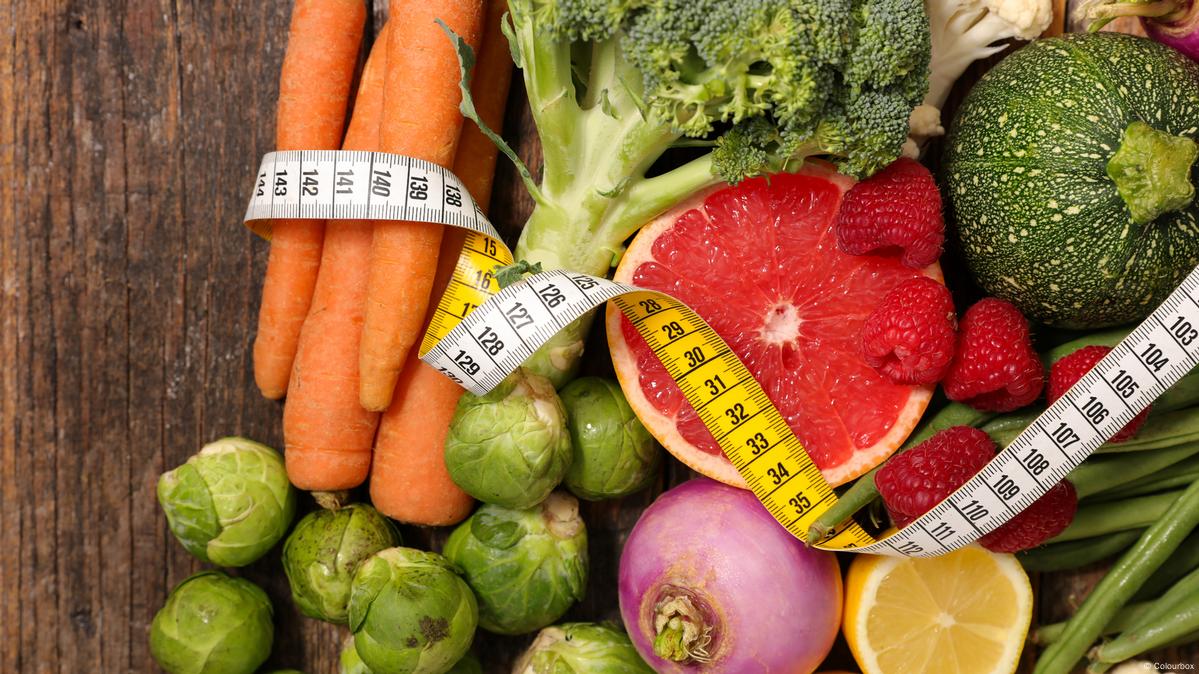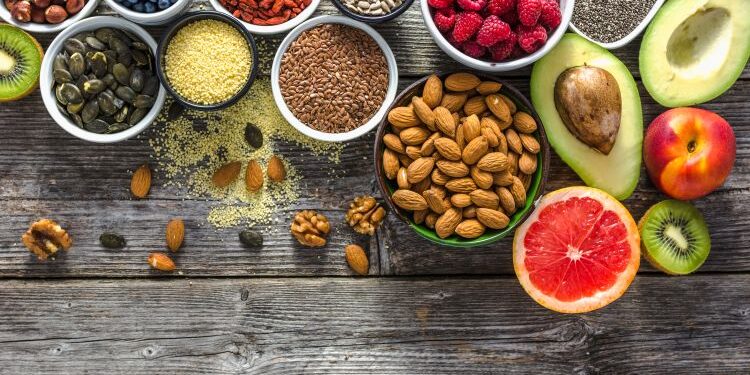The food we eat has a profound impact not only on our health but on the health of our planet. As global populations rise and environmental concerns become more urgent, the concept of a sustainable and eco-friendly diet has moved from a niche lifestyle choice to a global imperative. A sustainable diet is one that minimizes its environmental footprint while providing adequate nutrition, being culturally acceptable, and remaining economically accessible. It’s a holistic approach to eating that considers every step of the food journey, from farm to fork, and beyond. This comprehensive article will explore the core principles of sustainable eating, the environmental impacts of our food choices, and practical, actionable steps you can take to adopt a more eco-friendly diet, proving that what’s good for the planet can also be great for you.
The Environmental Footprint of Food
Before we can adopt a sustainable diet, we must understand how our current food system impacts the environment. The production, processing, transportation, and disposal of food contribute significantly to several major environmental crises.
A. Greenhouse Gas Emissions: The agricultural sector is a major source of greenhouse gas (GHG) emissions. Methane from livestock, nitrous oxide from fertilizers, and carbon dioxide from farming machinery and transportation all contribute to climate change. Beef production, in particular, has one of the highest carbon footprints due to the methane produced by cows and the land clearing required for grazing.
B. Land and Water Use: Food production is incredibly resource-intensive. Agriculture is responsible for a significant portion of the world’s freshwater consumption. Moreover, a huge amount of land is required for farming, especially for livestock. Deforestation to create grazing land or grow crops for animal feed destroys habitats and reduces biodiversity.
C. Biodiversity Loss: The expansion of monoculture farming, the use of pesticides, and habitat destruction are leading causes of biodiversity loss. When vast areas are cleared for a single crop, the variety of plant and animal life that once thrived there is lost, disrupting delicate ecosystems.
D. Water Pollution: The use of chemical fertilizers and pesticides in farming can lead to nutrient runoff. When these chemicals enter rivers, lakes, and oceans, they can cause algal blooms that deplete oxygen, creating “dead zones” where aquatic life cannot survive.
E. Food Waste: Globally, a substantial portion of all food produced is wasted. This waste not only represents a massive squandering of resources (water, land, energy) but also contributes to GHG emissions. When food decomposes in landfills, it releases methane, a potent greenhouse gas.
The Principles of a Sustainable and Eco-Friendly Diet
A sustainable diet is not a single, rigid set of rules but a flexible framework based on a few key principles. These principles help you make informed choices that are better for both your body and the planet.
A. Eat More Plants: The single most impactful change you can make is to reduce your consumption of meat, especially red meat, and increase your intake of plant-based foods. Plant-based diets, such as vegetarian or vegan diets, generally have a much smaller environmental footprint, requiring less land, water, and energy to produce. Even a “flexitarian” approach, where you simply eat less meat, can make a significant difference.
B. Choose Local and Seasonal Foods: When you buy food that is in season and grown locally, you reduce the carbon footprint associated with long-distance transportation. Food that travels thousands of miles to reach your plate uses a significant amount of fossil fuels. Shopping at local farmers’ markets also supports your community and ensures you’re eating fresh, nutrient-rich produce.
C. Minimize Food Waste: Reducing food waste is a crucial component of a sustainable diet. This can be achieved through:
* Meal Planning: Plan your meals for the week to avoid buying unnecessary ingredients.
* Proper Storage: Learn how to store different types of food to extend their shelf life.
* Creative Cooking: Use leftovers and scraps to create new meals, like turning vegetable peels into stock.
* Composting: For unavoidable food waste, composting turns it into nutrient-rich soil for gardens instead of sending it to a landfill.
D. Select Sustainable Sources: When you do choose to eat meat, seafood, or dairy, opt for products from sustainable and ethical sources. Look for certifications that indicate humane treatment of animals, responsible farming practices, and a commitment to environmental stewardship. For seafood, look for certifications from organizations like the Marine Stewardship Council (MSC) to ensure you are not contributing to overfishing.
E. Reduce Processed and Packaged Foods: Processed foods are often resource-intensive to produce and come in excessive packaging, much of which is non-recyclable plastic. By focusing on whole, unprocessed foods, you not only improve your health but also reduce waste and the energy associated with processing and packaging.
F. Drink Tap Water: Bottled water has a massive environmental footprint, from the energy required to produce and transport the plastic bottles to the waste they create. Using a reusable water bottle and drinking filtered tap water is a simple yet powerful change you can make.
The Health Benefits of an Eco-Friendly Diet
Adopting a sustainable diet isn’t just an act of environmental responsibility; it’s also a powerful investment in your personal health. The principles of a sustainable diet are almost perfectly aligned with the recommendations of leading health organizations.
A. Reduced Risk of Chronic Diseases: A diet rich in plant-based foods, whole grains, and legumes is associated with a lower risk of chronic diseases such as heart disease, type 2 diabetes, and certain types of cancer.
B. Improved Gut Health: A diet that is high in fiber from fruits, vegetables, and whole grains promotes a healthy gut microbiome, which is essential for digestion, immune function, and mental health.
C. Weight Management: Plant-based foods are often lower in calories and fat, and higher in fiber, which helps you feel full and can assist with weight management.
D. Increased Nutrient Intake: A sustainable diet often encourages a wider variety of foods, which can lead to a more diverse intake of vitamins, minerals, and antioxidants. Eating seasonally also means you’re consuming foods at the peak of their nutritional value.
E. Mental Well-being: The act of cooking fresh, whole foods and being mindful of your diet can have a positive impact on your mental well-being. It can be a form of self-care and a way to feel more connected to your food and the environment.
Practical Steps to Start Your Sustainable Diet Journey

Adopting a sustainable diet can feel overwhelming, but it doesn’t have to be an all-or-nothing approach. Start with small, manageable changes that you can build on over time.
A. Start with “Meatless Mondays”: A simple way to begin is by dedicating one day a week to a meat-free diet. This can help you discover new plant-based recipes and make the transition easier.
B. Visit a Farmers’ Market: Make a trip to a local farmers’ market a weekly habit. You’ll not only get fresh, local produce but also meet the people who grow your food and learn more about where it comes from.
C. Cook More at Home: Cooking at home gives you full control over your ingredients, reduces waste from takeout containers, and is often healthier and more affordable.
D. Experiment with Plant-Based Proteins: Swap out some of your meat-based meals with plant-based alternatives like lentils, chickpeas, tofu, tempeh, or beans. These are excellent sources of protein and fiber and have a much lower environmental impact.
E. Learn to Preserve Food: Try canning, freezing, or fermenting in-season produce to enjoy it year-round. This reduces waste and allows you to savor the flavors of the seasons.
F. Grow Your Own Food: Even if you live in an apartment, you can grow herbs or a small vegetable garden on a windowsill or balcony. This is a great way to reduce your carbon footprint and connect with your food.
The Future of Sustainable Revolution
The future of food is a sustainable one. The trends we are seeing today are not just fads; they are part of a larger shift towards a more conscious and responsible food system. The future will likely be characterized by several key innovations.
First, cellular agriculture will become more mainstream. This involves growing meat and other animal products from cells in a lab, a process that requires a fraction of the land, water, and energy of traditional animal farming.
Second, vertical and urban farming will become more common. By growing food in multi-story, indoor farms in cities, we can drastically reduce the carbon footprint associated with transportation and make fresh, local produce available year-round.
Third, AI and precision agriculture will help farmers use resources more efficiently. AI-powered sensors and drones will monitor crop health and soil conditions, allowing farmers to apply water and fertilizer only where it is needed, reducing waste and environmental impact.
Finally, consumer behavior will continue to shift. More people will be aware of the environmental impact of their food choices and will demand more sustainable options from restaurants and food producers. The future of food is a collaborative effort, with technology, innovation, and conscious consumerism all playing a role in creating a more sustainable and equitable food system for all.
Conclusion
The food choices we make every day have a ripple effect that extends far beyond our dinner table. By adopting a sustainable and eco-friendly diet, we can become a powerful force for positive change, contributing to a healthier planet and a healthier ourselves. This is not about deprivation or an all-or-nothing approach; it’s about making small, mindful choices that add up to a significant impact over time. It’s about a return to whole, unprocessed foods, a connection to the seasons and local communities, and a profound respect for the resources that sustain us.
The journey to a sustainable diet is a deeply personal one, but it is also a collective one. Every meal we choose is an opportunity to vote with our fork for the kind of world we want to live in. By reducing our meat consumption, minimizing food waste, and supporting local, sustainable producers, we are participating in a global movement that is redefining our relationship with food. This movement is not just about a healthier planet; it’s about a more resilient, equitable, and vibrant future for all. The most delicious part of a sustainable diet is knowing that every bite you take is a step towards a better world. So, start small, be mindful, and enjoy the journey to a more sustainable, and delicious, way of eating.








Discussion about this post